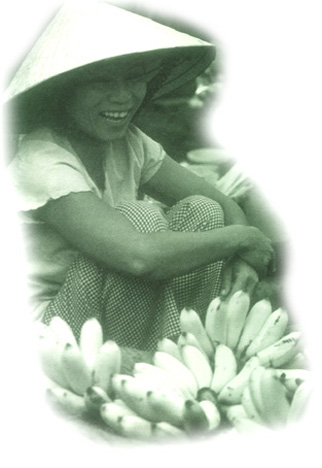 |
This report synthesizes the main issues and lessons learned from the Inter-agency Forum on Operationalizing Sustainable Livelihoods Approaches, held at the Certosa di Pontignano, near Siena, Italy, 7-11 March 2000. The Forum brought together several agencies that had been applying or developing sustainable livelihoods (SL) approaches in their work, including CARE, the Department for International Development (DFID), the Food and Agriculture Organization of the United Nations (FAO), the International Fund for Agricultural Development (IFAD), the United Nations Development Programme (UNDP) and the World Food Programme (WFP).
The purpose of the Forum was to:
 enable development practitioners to assess the relative merits of a variety of SL approaches in programme or project design and implementation;
enable development practitioners to assess the relative merits of a variety of SL approaches in programme or project design and implementation;
 strengthen the capacity of participating agencies to apply SL approaches;
strengthen the capacity of participating agencies to apply SL approaches;
 identify issues that need to be resolved if SL approaches are to be institutionalized.
identify issues that need to be resolved if SL approaches are to be institutionalized.
The Forum was expected to provide participants with the opportunity to:
 share experiences of applying SL approaches in a range of field projects;
share experiences of applying SL approaches in a range of field projects;
 explore and plan how best to put SL approaches into practice.
explore and plan how best to put SL approaches into practice.
The Forum followed a three-week Web/E-Conference on "Operationalizing participatory ways of applying SL approaches", which served to familiarize Forum participants with SL concepts, guiding principles and the SL framework. Four theme papers were prepared as a basis for discussion during the Web/
E-Conference 1, and theme moderators prepared guidance notes to support them.
The Forum was organized around a series of case studies in order to focus discussion on concrete issues related to operationalizing SL approaches. Each agency prepared and presented one or more of its own project experiences as a basis for analysing the strengths and weaknesses of SL approaches. Case studies were selected that typified the range of situations confronted by development agencies. These ran the gamut from drought-prone areas of Mali, to upland watersheds in Latin America, to flood-prone lowland paddy areas in Bangladesh, to cold grasslands in Mongolia. Four of the eight case studies concerned sustainable natural resource management (watershed management, land husbandry, soil and water conservation, integrated pest management). The remaining four were examples of dryland agriculture, artisanal fisheries, livestock and household food security (see Table 1). Four mini-case studies dealt with cross-cutting issues: gender, rural micro-finance, institutional restructuring and the design of a sectoral regional project.
Forum participants were split up into groups of seven to eight members, each with well-defined terms of reference. The groups had to: (1) understand the project as designed, then apply the SL framework and assess what might have changed if SL principles had been used; (2) analyse how the project evolved during implementation, then apply SL principles and discuss what difference this might have made to implementation; (3) examine project outcomes and consider whether the application of SL approaches would have resulted in substantially different outcomes; (4) suggest ways of redesigning the project in the light of SL approaches and identify constraints likely to emerge in implementing the redesigned project; and (5) draw out lessons regarding the value added by SL approaches and flag any issues needing further clarification.
At the end of the second day, each case study group reported back to the plenary group, which then prioritized the most important unresolved issues. New "issue groups" were formed to discuss these and report back to the plenary group.
1. What are the best entry points for SL approaches?
2. Do SL approaches add value for implementation?
3. If SL approaches help agencies understand the poor, do they help reach them?
4. Do SL approaches always need a policy dimension?
5. How much diagnosis and when?
6. Are SL approaches culture-bound?
7. Can SL approaches work in authoritarian regimes?
8. What do SL approaches imply for donor agencies?
Participants then broke up into agency-specific groups to discuss the implications of SL approaches for operations in their own agencies.
As a postscript to the Forum, after the closing session, an inter-agency managers' meeting endorsed recommendations from the Forum on the question: "Where do we go from here?
TABLE 1 | ||||
Summary of case studies for the Forum COUNTRY | ||||
COUNTRY |
PROJECT |
DONOR/ AGENCY |
SECTOR/ ENTRY POINTS |
EVOLUTION |
Bangladesh |
INTERFISH |
DFID |
|
|
Bolivia |
Upper Piraí |
FAO/ Italy |
|
|
Ethiopia |
Soil & Water |
WFP/ |
|
|
Honduras |
Lempira Sur |
FAO/NL |
|
|
Malawi |
Malawi Sustainable |
UNDP |
|
|
Mali |
Segou Village |
IFAD |
|
|
Mongolia |
Arhangai Rural Poverty Alleviation |
IFAD |
|
|
Zambia |
Improving |
FAO/ Fund |
|
|
1 These were "Livelihoods approaches compared", by Diana Carney et al.; "Operationalizing household livelihood security", by Tim R. Frankenberger, Michael Drinkwater and Daniel Maxwell; "Sustainable livelihoods approaches at the policy level", by Anne M. Thomson; and "Institutions and sustainable livelihoods", by Jim Bingen.